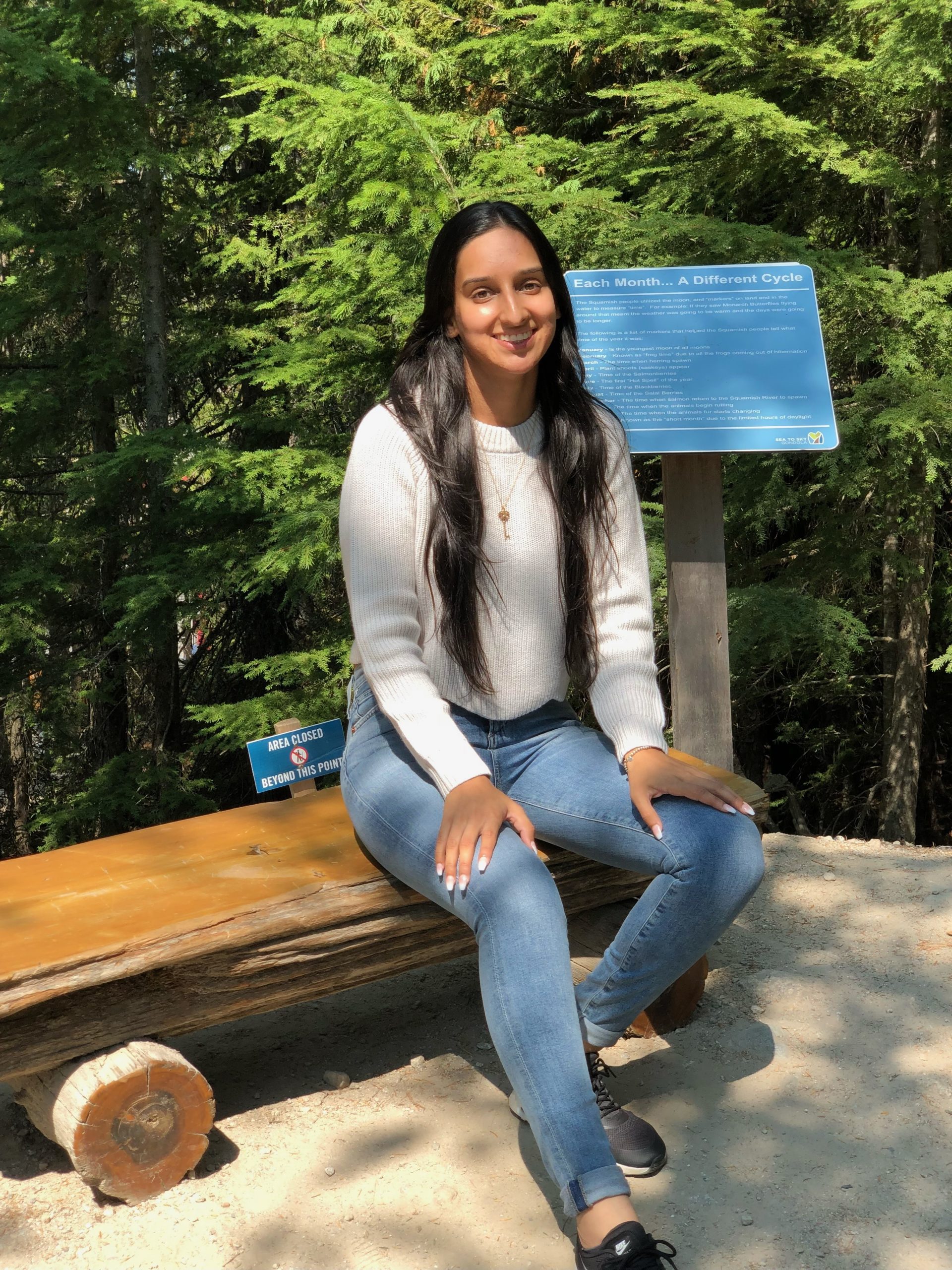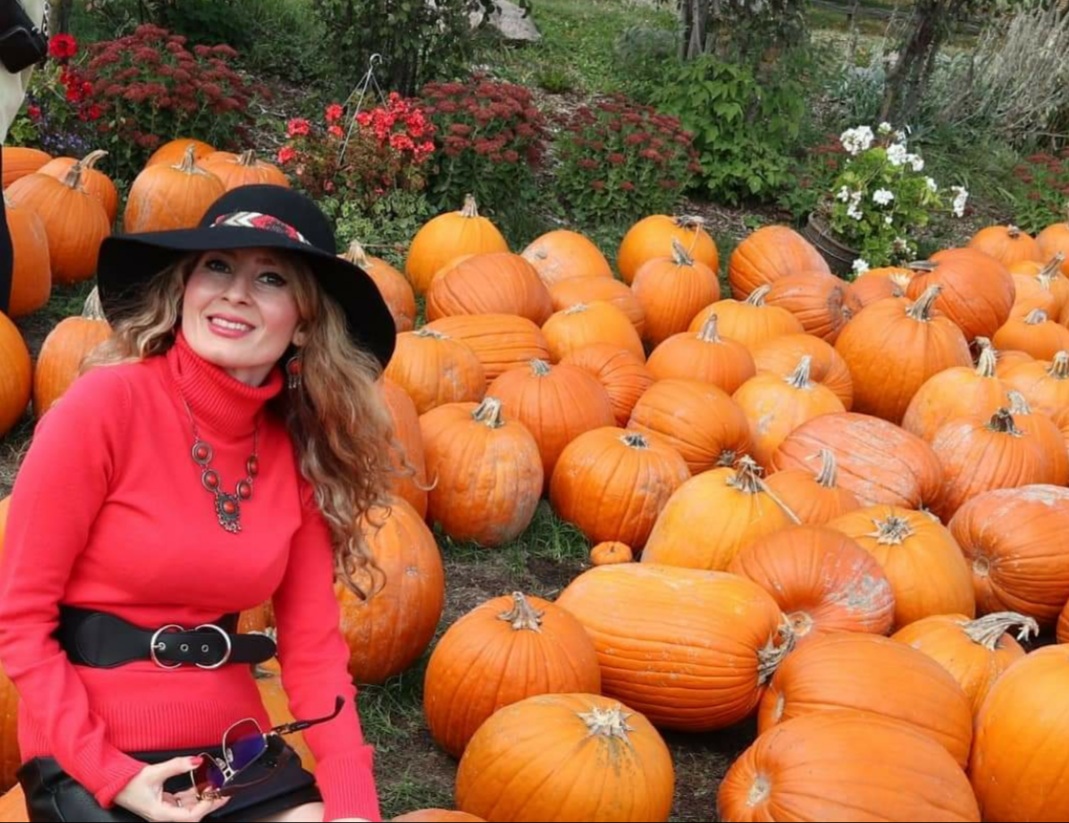The MS community is a global community, made up of individuals from a variety of cultures, ethnicities, and backgrounds. Everyone has their own unique stories and experiences when it comes to their MS journey and a person’s understanding of health, wellness, illness, and disability are often influenced by their own cultural background.
October is Global Diversity Awareness Month, and we are taking the opportunity to learn from a few members of our community and share their different cultural perspectives on life with MS.
Imaan, diagnosed in 2016
“I grew up in North Bay, Ontario. I was a Muslim girl in a primarily Caucasian community. Until I started high school, I was the only brown girl in my class. I was the odd one out in that way, but my mom always encouraged us to celebrate our differences.
Family and community are an important part of Muslim life. There is a reliance on your family and community not only for support, but for prayer as well. In the Muslim community, hardships are viewed as tests to overcome, instead of a punishment you suffer. Muslims are generally accepting of difficulties in life. How you deal with hardships strengthens you as a person and your community rallies around you with love, empathy, understanding, and prayer. People will offer to drive you to appointments, cook for you, and help look after you.
Looking at my MS as a test, not a test that I have to get 100% on, but a test of ongoing growth, helps me day-to-day. My faith helps me remain positive and appreciate every moment, because you aren’t owed any particular moment in life—you just get to have it and experience the moment to the best of your abilities.
Prayer allows me to believe there is a greater being who shares responsibility for my life. A being who almost knows what the best, most beautiful version of my life could be and is trying to guide me through it. It does not mean that being will give me a life without hardship though—what good story lacks struggle?”
Rheanna, diagnosed in 1997
“It’s essential to acknowledge that Indigenous people have traditionally held different perspectives about persons living with disability.
In our contemporary world, ‘disability’ is a constructed identity that lends to persons being able to access different medical or health services and be protected under the Canadian Charter of Human Rights and Freedoms. It is a socially constructed and colonial term ‘disability’ is considered from a very individualized and isolated experience, that can negate the relational tenets that are at the foundation of Indigenous communities. Disability does not just impact the individual, it impacts parents, it impacts children, it impacts siblings, and then ultimately, the entire community.
I have learned that there are traditional [Indigenous] languages that do not have a word for ‘disability’ or ‘disabled’. Now, this is not to say that Indigenous communities didn’t or don’t have terms for specific limitations. For example, in the Nisga’a language, while there is no word for disability, there is a word for ‘walking abnormally’ which is gana’atkw. But ‘disability’ did not define someone’s identity. Within traditional Indigenous views of physical, sensory, psychiatric, cognitive, neurological, or intellectual impairments, differentiation from able-bodied individuals did not exist. The attributes and gifts one brought to the world did not include a disability identity and one’s relational role in the community always prevailed.
Overcoming assumptions, stigmas, discrimination, and stereotypes of being Indigenous and disabled is profound. Fear and isolation can be as crippling as the condition itself. In public school, university, and some of my workplaces, I encountered judgements of disability as ‘bad’. I avoided calling in sick to work and wouldn’t dare miss a parent-teacher meeting, or an important social or professional gathering. Risking the perception of being incapable, incompetent, a nuisance, or lazy was not an option.”
Kajal, diagnosed in 2020
“I don’t want to walk around with a big sign over my head saying, “I have MS,” but I want to normalize talking about illnesses, especially in the South Asian community. Since MS symptoms can sometimes be invisible, people in the South Asian culture look at you as if you are making up how you’re feeling. Some family members look at me as if I’m faking it and looking for pity. I wish they would be more understanding because although these symptoms may be invisible, my disease is very much real. I want it to be okay to talk about disabilities and for people to be open to understanding and accepting them.”
Andrea, diagnosed in 2014
“My parents waited a few months before telling my family in Guatemala and the United States. MS is not well-known in my culture and there is a lack of understanding and recognition of some of the invisible symptoms, especially fatigue. My parents are working to change their perspective and learn more about MS, but that’s been harder for my extended family.
I tell friends and acquaintances right away. I want to help remove the stigma that this is only an older person’s disease and automatically means you will end up in a wheelchair. This disease takes so many forms and can happen at any age.”
Sogol, diagnosed in 2010
“When I first came to Canada, I was dealing with a new language, a new diagnosis, and a heartbreak from a failed marriage – all by myself. It was important for me to find other people who could understand my struggles because from my experience, people in my culture tend to not speak much about their diseases. I started my own Farsi-speaking MS support group in the hopes of meeting people who may be feeling out of place without their family and friends here. I wanted to know that I wasn’t alone.
At first, my diagnosis felt like a wave of confusion, sadness, and loneliness because it took away my health and happiness. Now, I see it as a blessing in disguise. It changed my perspective on life for the better. Throughout the years, I have met people with inspiring stories of perseverance, and they have helped me live with my new reality. My goal was to help people, but in return, they saved me.”
We’re committed to representing and amplifying diverse perspectives all year round. Share your experience with MS by emailing socialmedia@mssociety.ca






